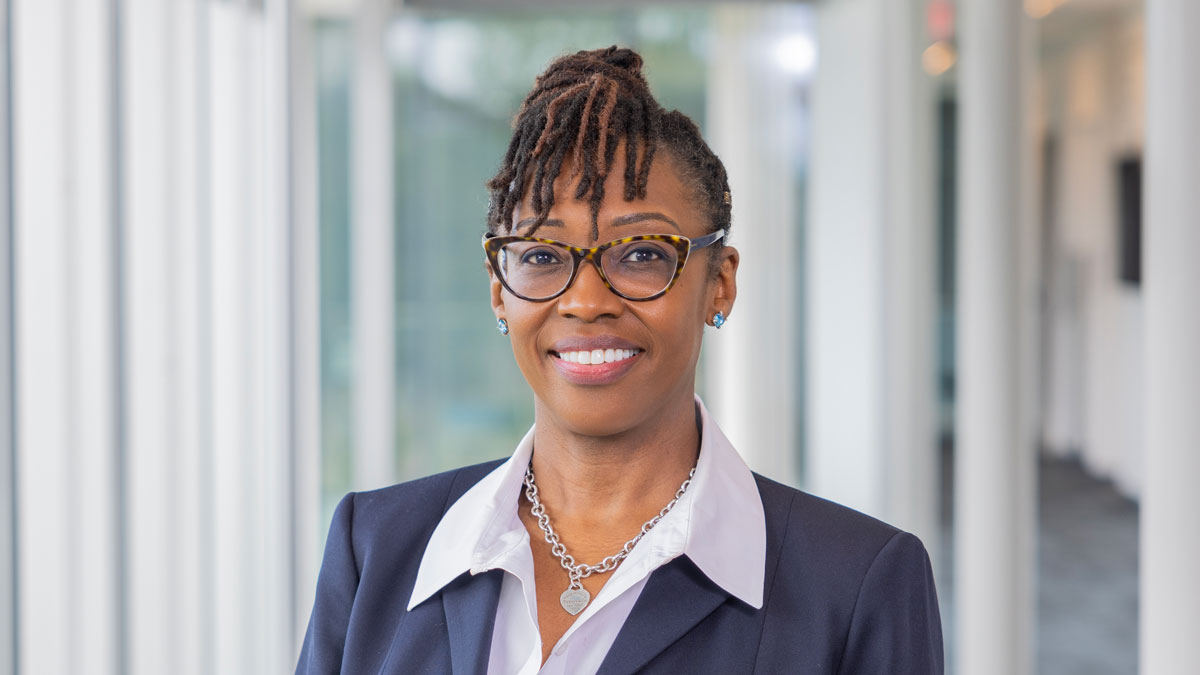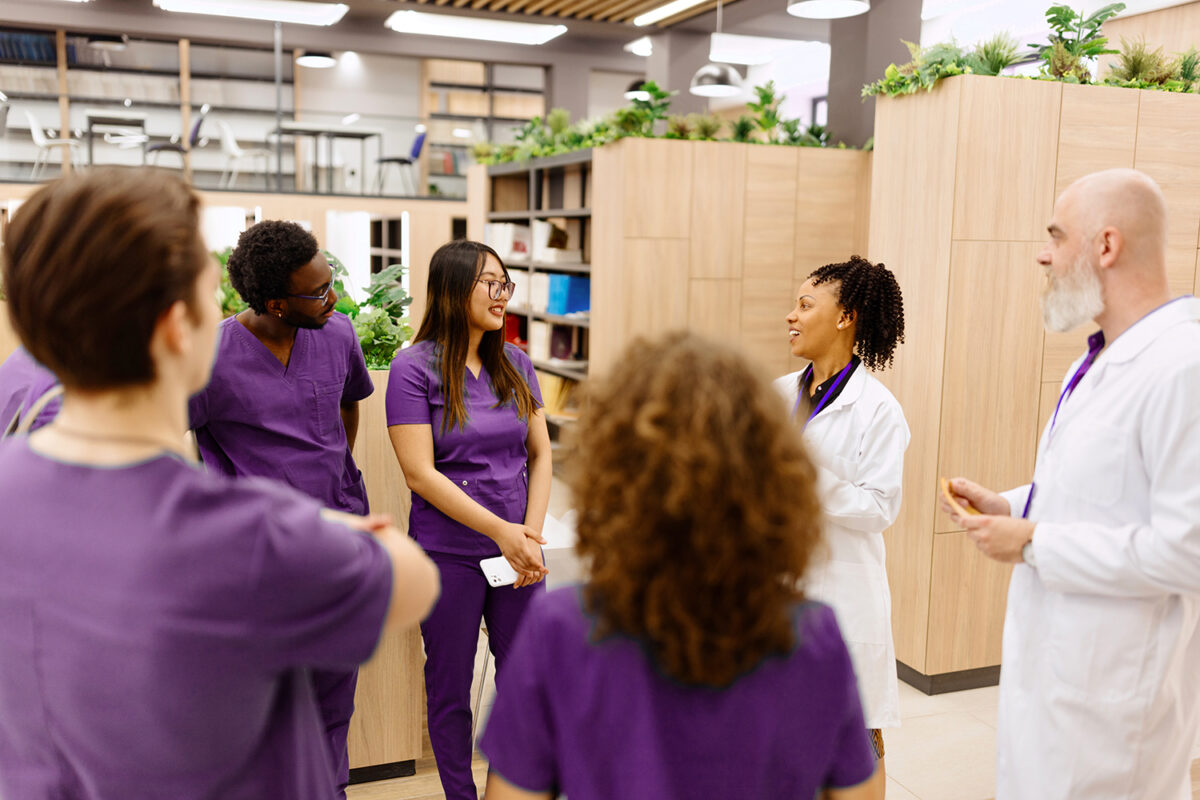
Lori Robins shows conference poster to Jeff Williams. (UW Bothell photo)
University of Washington Bothell research chemists continue to help a small Woodinville company that expects to change the world of sanitizing and disinfecting.
A year ago, chemistry students led by Lori Robins, associate professor in the School of STEM, helped the Briotech company prove that its product destroyed prions, the abnormal proteins behind mad cow disease and other neurological diseases.
For the past year, UW Bothell researchers have been defining the stability of the hypochlorous acid (HOCl) solution. Robins presented the work in August with a poster at the national meeting of the American Chemical Society in Washington, D.C.
The research shows the solution is remarkably stable, said Jeff Williams, the chief science officer for Briotech. That makes it stand out in the field of sanitizers and disinfectants made by running an electrical current through salt water. Other electrolytically generated hypochlorous acid solutions must be used right away, requiring on-site equipment.
A barrel of Briotech’s HOCl could be shipped half way around the world and be ready to use years later, Williams said. In addition to its effectiveness against prions, the solution kills bacteria, fungus and viruses. It can safely sanitize surfaces or medical equipment, and it can protect produce and meat processing. For example, a mist in an apple warehouse might replace toxic methods of killing listeria and E. coli bacteria on fruit.
“We’re going to change the world,” Williams said.
Most of the recent research was done by Luis Contreras, a UW Bothell graduate working as a research technologist while preparing to apply to medical school. Additional work was done by another research technologist, Carolina Seek, Robins said.
Robins’ students continue to research a derivative of the solution that could be more potent. The ongoing collaboration with Briotech has been good for the company and good for Robins’ researchers.
“I think these meetings set the standards and expectations for the group,” Robins said.



